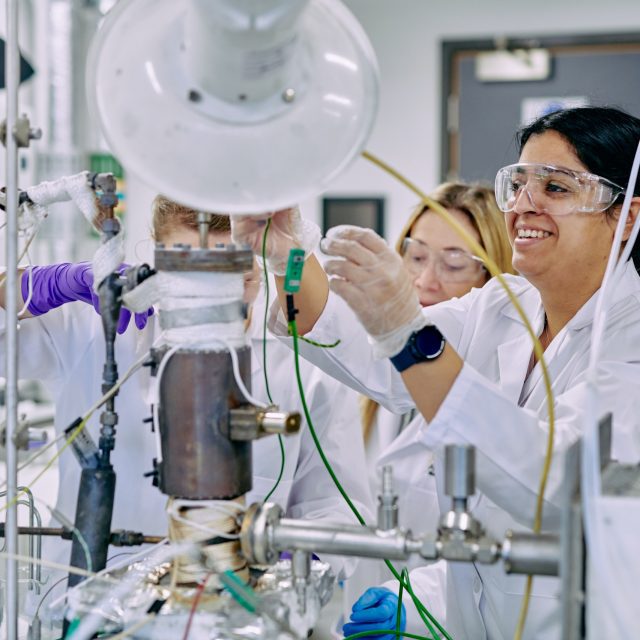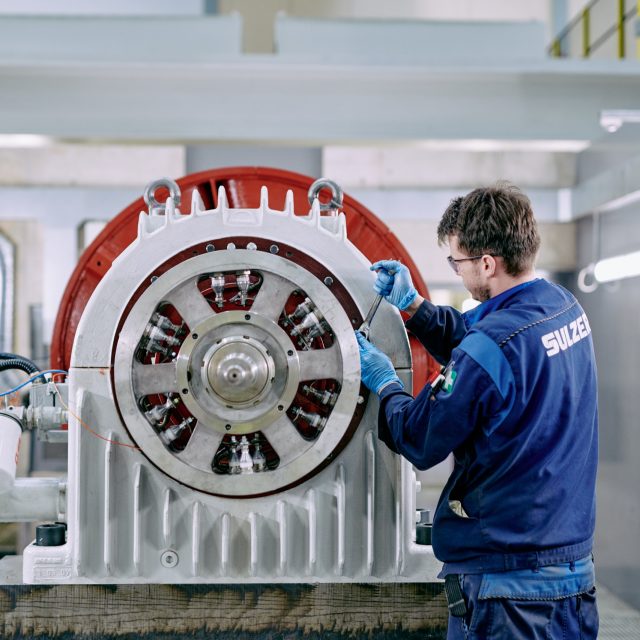Sustainable Construction
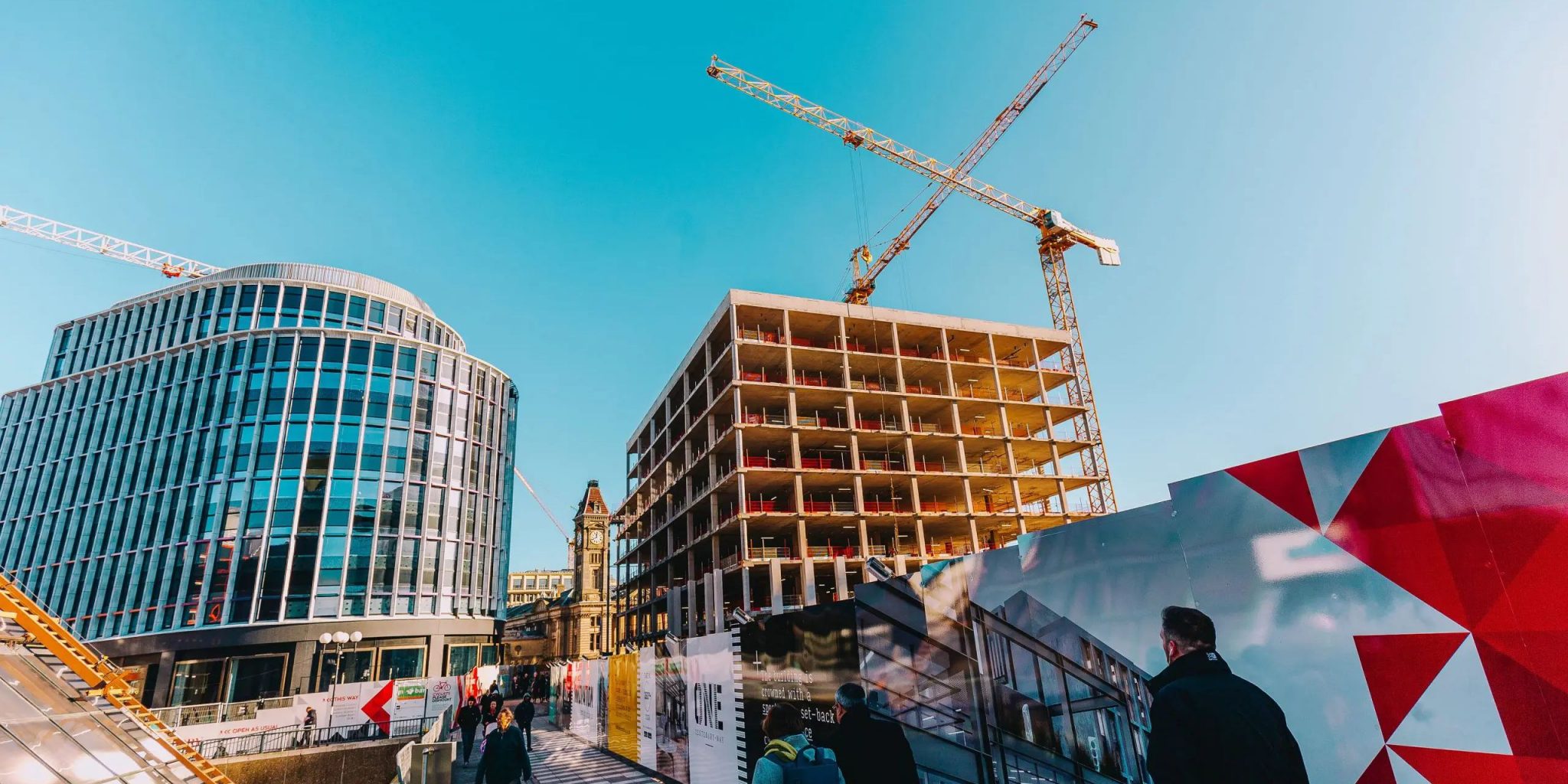
Sustainability is crucial to the evolution of the construction industry. The West Midlands has the ambition, skills and demand to carve a path for Sustainable Construction and low-carbon goals.
As the West Midlands is aiming to be carbon net-neutral by 2041 (ahead of the UK’s 2050 commitment), local companies are interested in ways to become more efficient while having less impact on the environment.
The International Environment Agency stated that carbon emissions from buildings operations need to halve by 2030 to meet global targets. Across the region, movements like the Green Innovation Corridor prove that Birmingham, Coventry and Wolverhampton are all eager to welcome sustainable design and construction solutions.
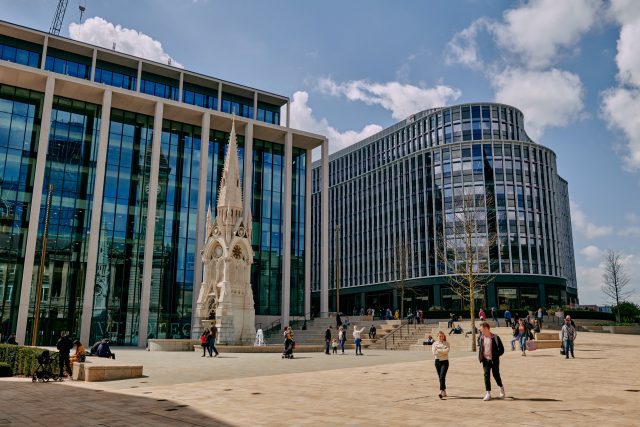
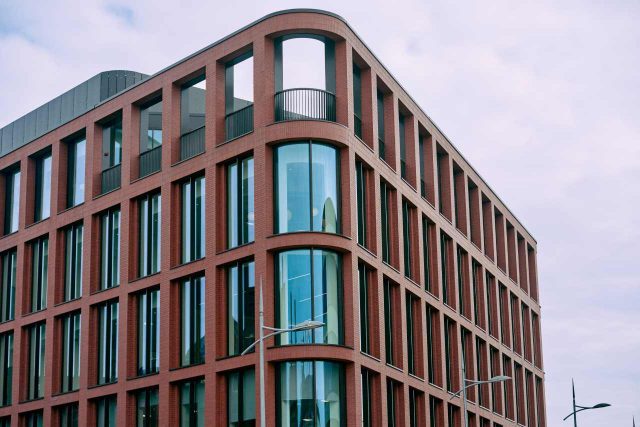
Construction opportunities in the UK
The Farmer Review was commissioned by the UK Government in 2016 to evaluate the state of the construction sector. The report set out 10 recommendations to energise the industry. One of these explicitly called for the government to promote policy that embraces pre-manufactured construction solutions.
The report also boldly stated that the industry must “modernise or die,” emphasising the need for updated solutions that streamline processes, reduce error, and align the design stage with the build processes.
The West Midlands and the UK’s construction markets are clearly entering a time of evolution, and are hugely welcoming to any providers that can help modernise the sector.
Pre-manufacturing
The West Midlands is renowned for its manufacturing capabilities. From automotive to aerospace, the West Midlands has a strong manufacturing presence.
We have the factories, the facilities and the technology to manufacture on a large scale. This means the infrastructure and supply chains needed to support large manufacturing projects is already here and waiting to be utilised.
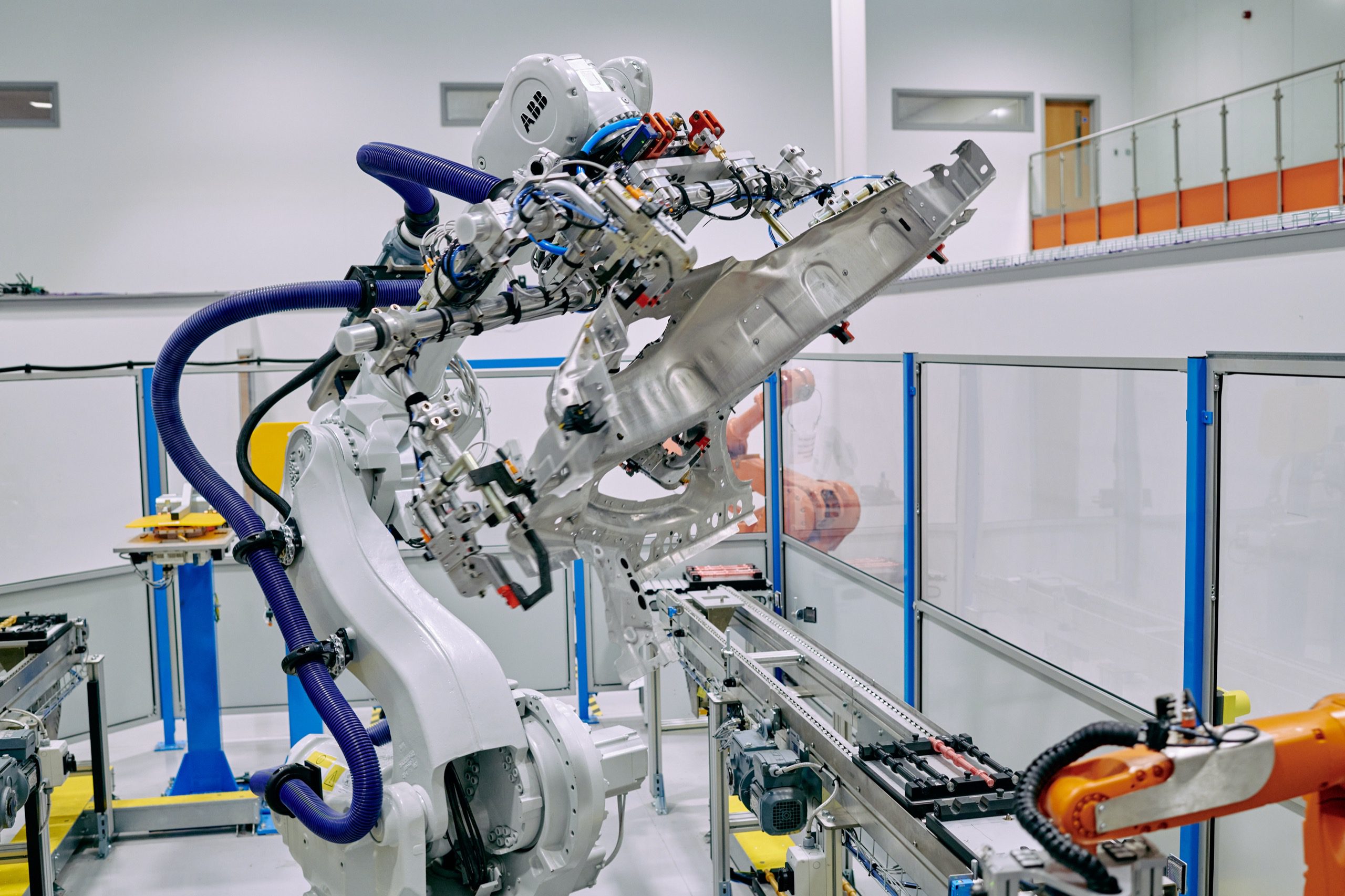
Simulation, digitization and modelling
In order to modernise, to become more efficient, the construction sector requires better communication between all stages of the process. The building process is becoming more complex to meet carbon-neutral goals, with decision making happening across every level of a project.
Bringing these levels together through digital modelling is a crucial step towards modernising the industry. There is potential for decision support tools to increase efficiency throughout a construction project, from the design board through to the end of the project.

The West Midlands has a booming digital sector. We are the UK’s fastest-growing tech sector that employs 76,000 talented individuals. From Cybersecurity to gaming, the local digital and tech industry is set to boost the national economy by £2.7 billion by 2025.
As the country’s first 5G multi-city testbed we are well placed to support pioneering tech companies. With 50+ accelerators and incubators in the region, we can help kickstart a company’s journey or help them grow to the next level. With local sector experts ready to help you find funding routes, office spaces or professional networks, all free of charge, you can land in the West Midlands and hit the ground running.

The Circular Economy Routemap
The West Midlands Combined Authority is building a circular economy – reusing and recycling on an economy-wide scale. In the Routemap, construction is identified as one of three priority areas.
Among other approaches, the Routemap calls for supporting the growth of regional products and services that enable the construction industry to become greener and fit into the circular economy. It looks at both physical elements such as sourcing the best sustainable materials for construction, and soft infrastructure such as Data & Digital, and R&D are highlighted as key enablers to achieving circular economy goals.
The strategy for sustainable construction is generating opportunities across the industry and calling on wider skills and innovative solutions to make it happen.
A region embracing the future
Demand for housing is high in England, with the government target of 300,000 new homes per year not yet being met. Only 216,000 new homes were built in the year 2020-21, and sustainable, modular construction is going to play a crucial part in accelerating the market towards the nation’s goal.
This, coupled with the West Midlands’ ambitious commitment to be carbon net-zero goal by 2041, created a need for housing that is efficient to build and better for the environment. It is no surprise then that sustainable construction practices and investments in modular housing, such as the Canalside South development in Wolverhampton, are becoming more common.
Wolverhampton’s Green Innovation Corridor
The City of Wolverhampton Council has entered a bid for £20 million of the UK Government’s Levelling up funding. The funds will go towards delivering the ambitious Green Innovation Corridor.
This is an exciting opportunity for any green or low-carbon company, offering office and industrial space in the centre of an area that will become a focus for the green revolution.
Andy Street, Mayor of the West Midlands, said: “This Green Innovation Corridor is the next step in the process of capturing the growth opportunities that new businesses in green technology and innovation give us; with new research space for scientists, office space for new enterprises, and, of course, new jobs in Wolverhampton.”
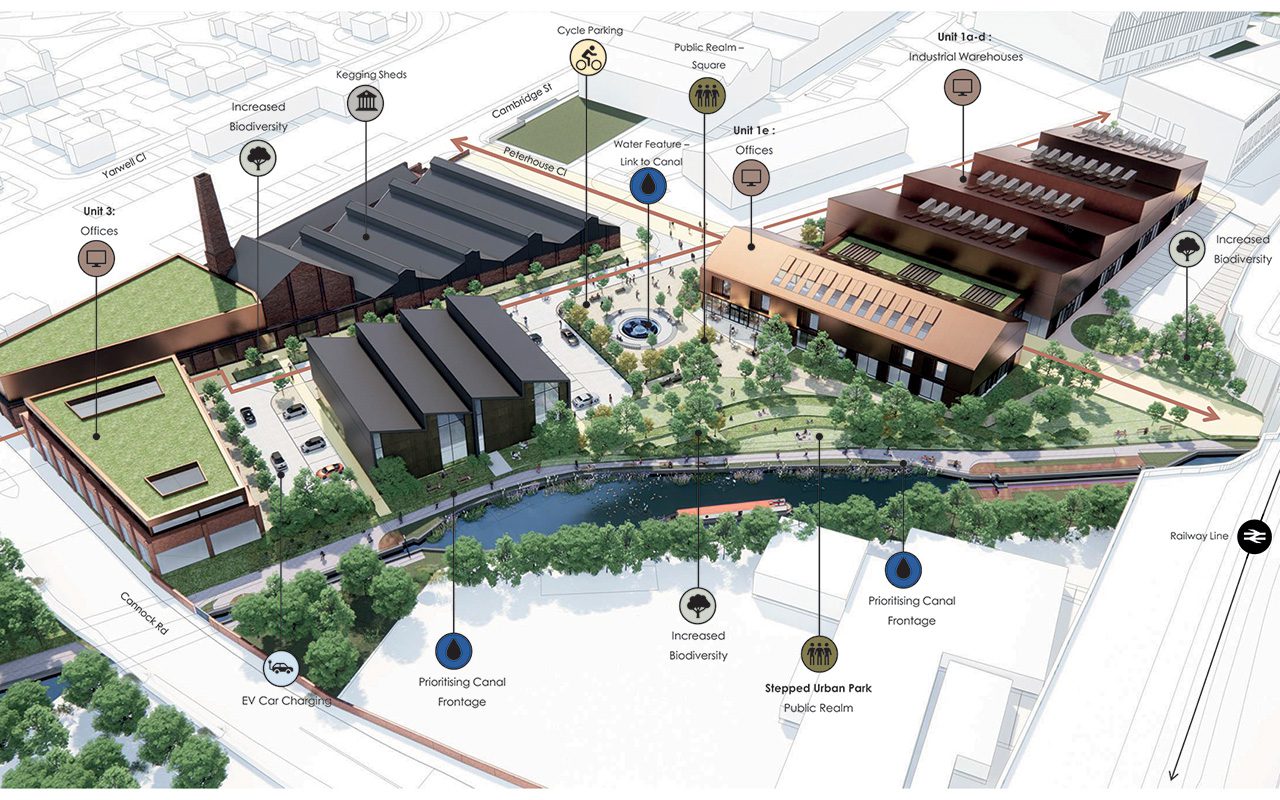
A strong history of manufacturing
Increasingly, the future of Sustainable Construction, Cleantech, and the Built Environment depends on the crossover between manufacturing and construction.
The West Midlands has a legacy of advanced manufacturing proficiency, and today stands as one of the largest manufacturing economies in the UK, with a GVA of almost £16 billion across the WMCA’s triple LEP.
West Midlands companies have a huge advantage, drawing on our significant manufacturing history and existing skills base. Companies like Accord, Prism and ModPod are taking advantage of the region’s strengths.
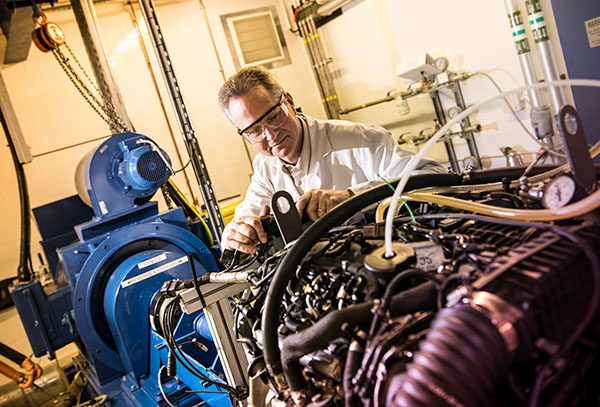
Education that is securing the future of the industry
The West Midlands’s eight world-class universities work with our industries to create beneficial partnerships that push the boundary of what can be accomplished.
Professor David Boyd of Birmingham City University wrote about the necessity of “practically-applicable or real-world gain” research. His work on the future of digital construction includes Building Information Modelling, or BIM, for sustainable construction, and creating digital representations of physical spaces to aid project management and decision-making processes.
The £120 million School of Architecture and the Built Environment at the Springfield Brewery Campus of Wolverhampton University is a testament to the skills and dedication our region has to the future of the construction industry. It is teaching the next generation of students, students that can form your team and help your company succeed.
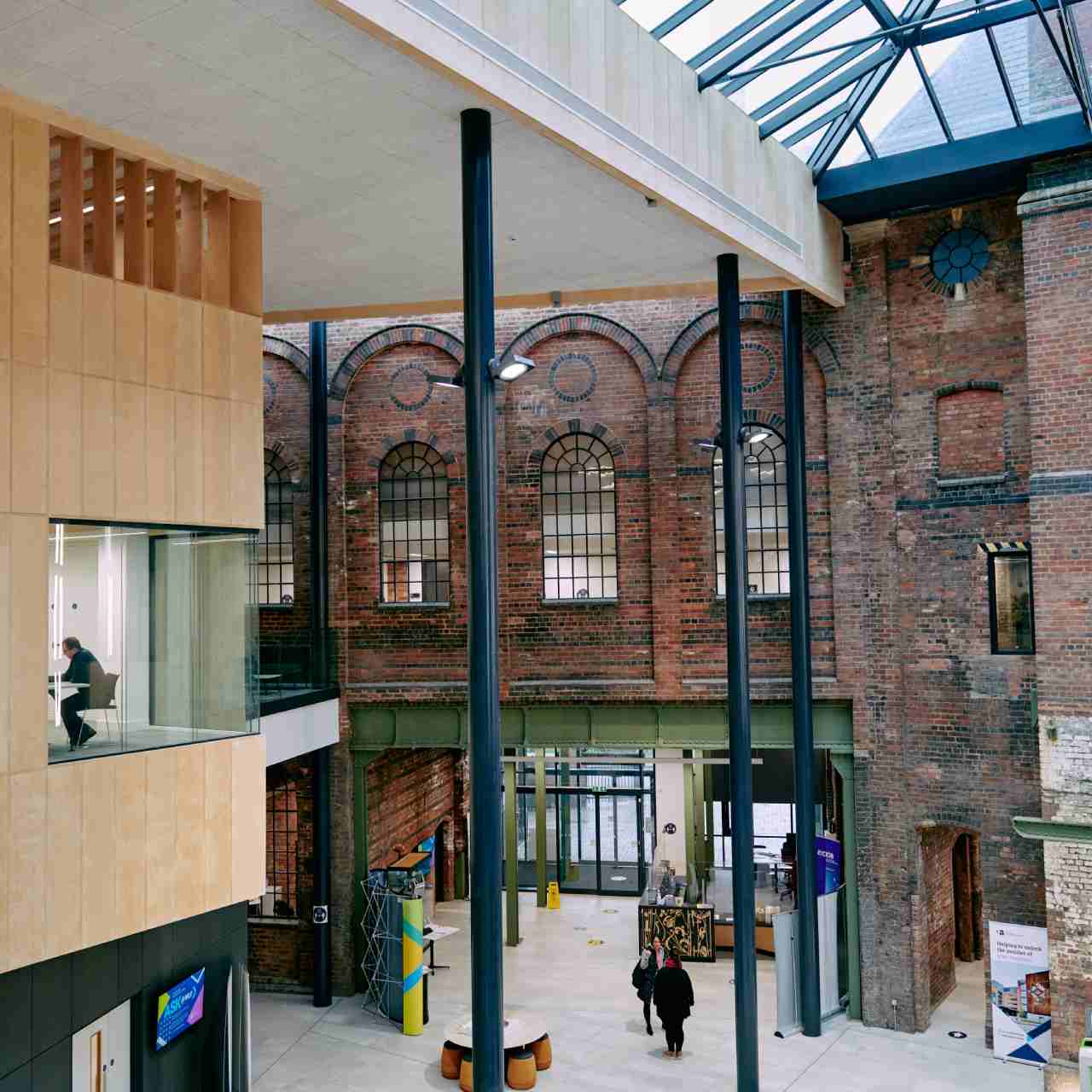
A proven place for success
Birmingham is host to a number of global, leading technical consultancies in green construction and the built environment. We are home to the likes of Mott MacDonald, Arup, WSP, Arcadis and Wates.
The SES Engineering arm of Wates has relocated its offsite manufacturing operations to a Coventry facility. The move “reflects the industry shift towards prefabrication” according to Jason Knights, managing director of SES Engineering Services. The growing demand for offsite manufacturing solutions and the availability of highly skilled people in Coventry were also deciding factors in the move.
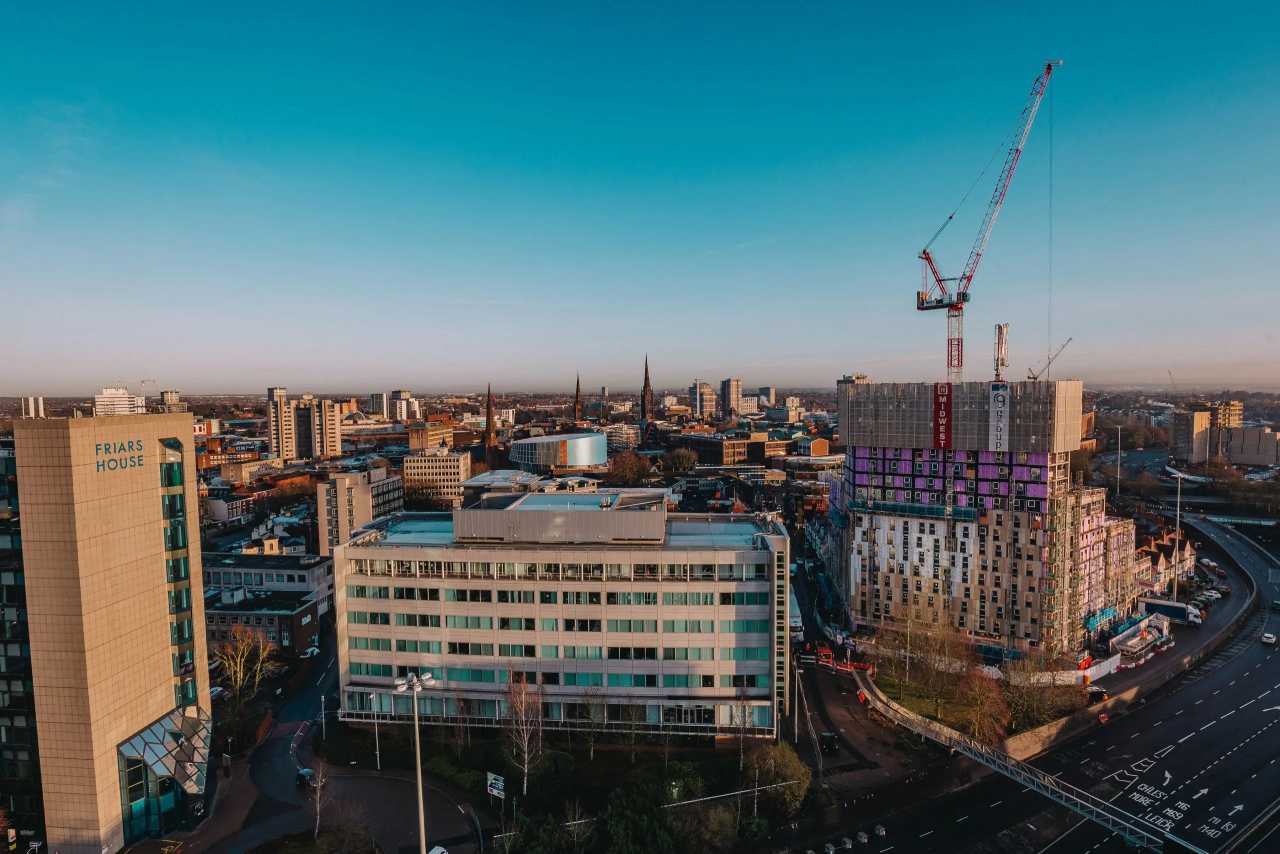
Free support services
We bring together a project team from relevant organisations across the region. This team includes property agents, recruitment consultants, public sector departments and universities. It delivers a comprehensive support package to quickly and easily help you establish and scale your business in the UK.


